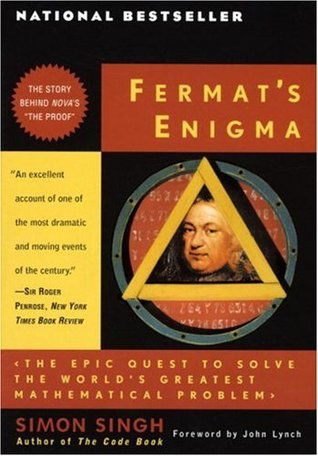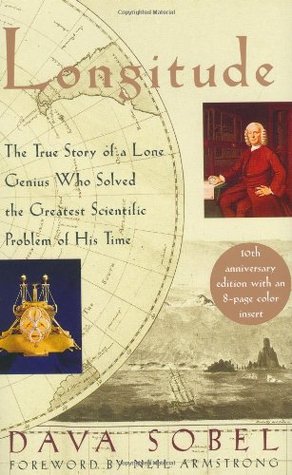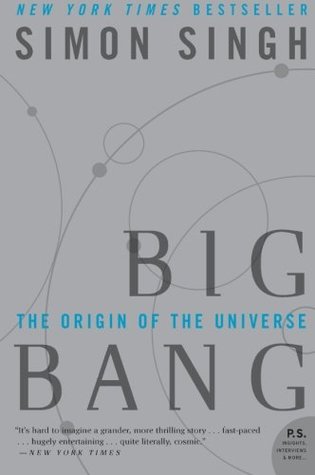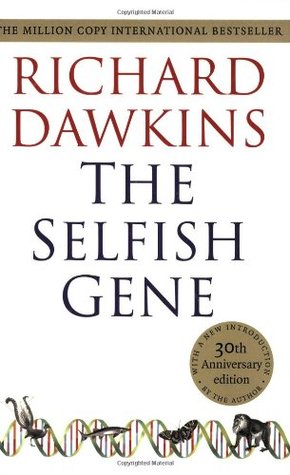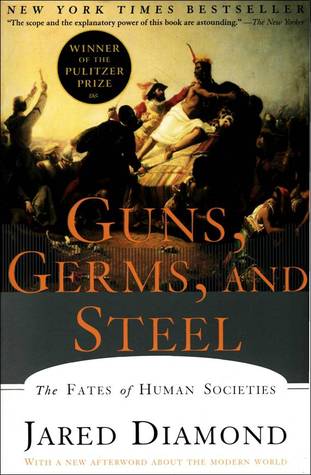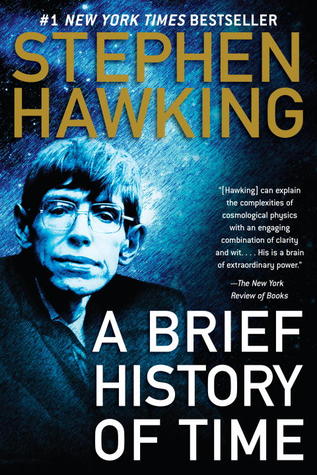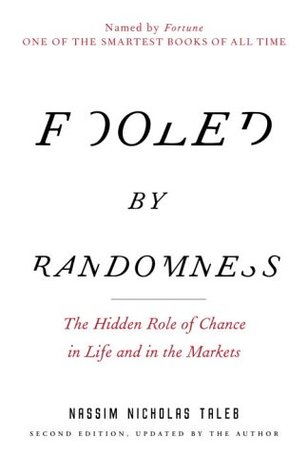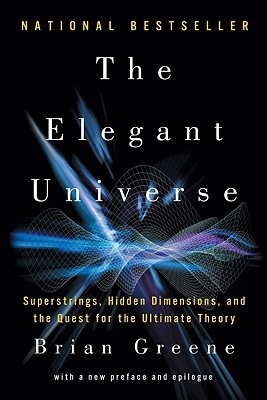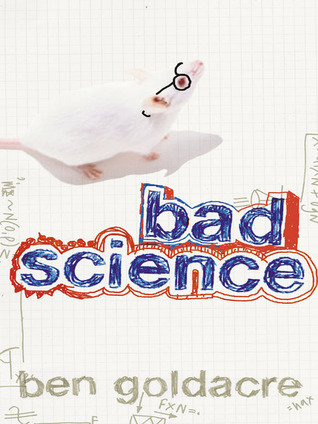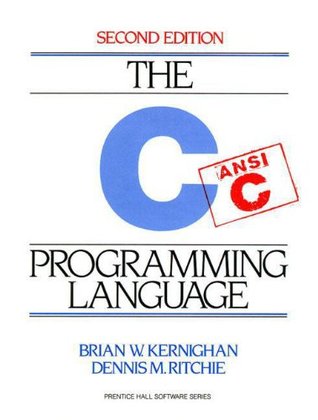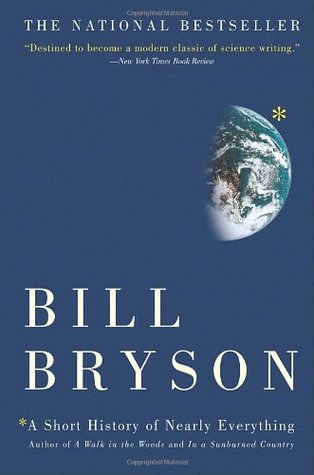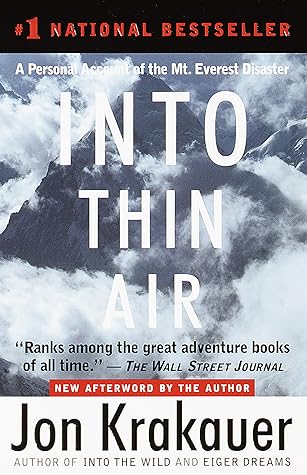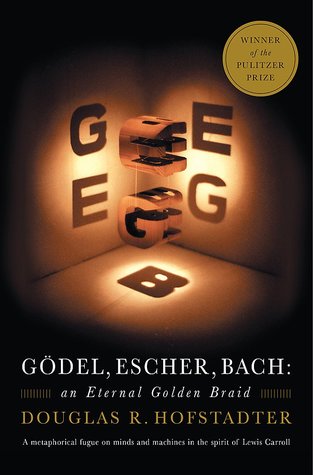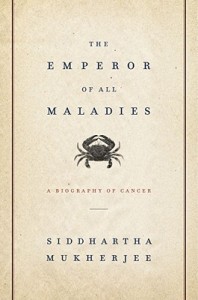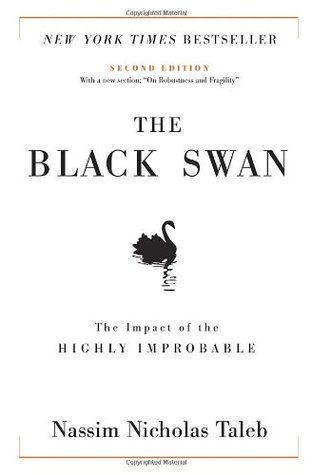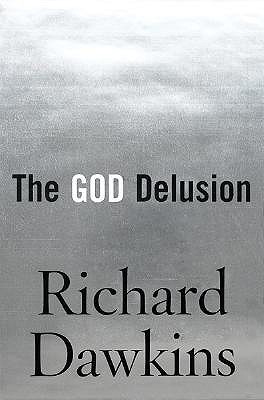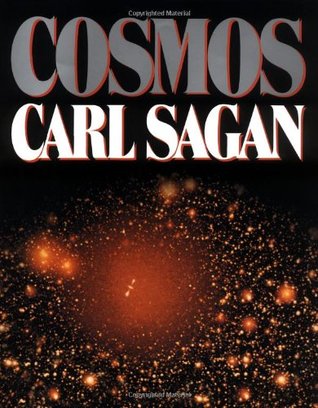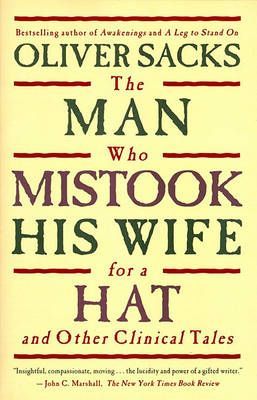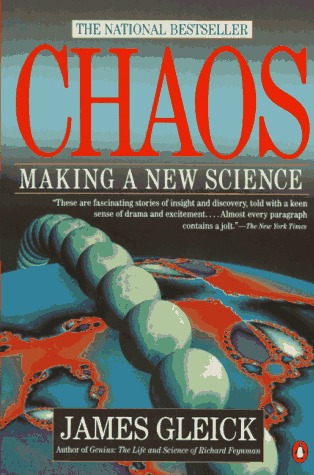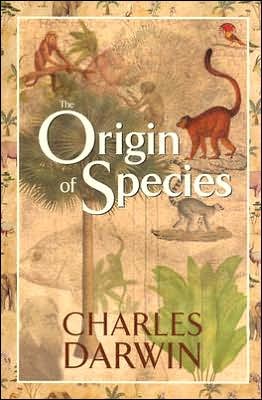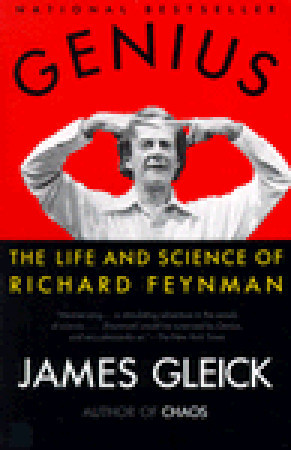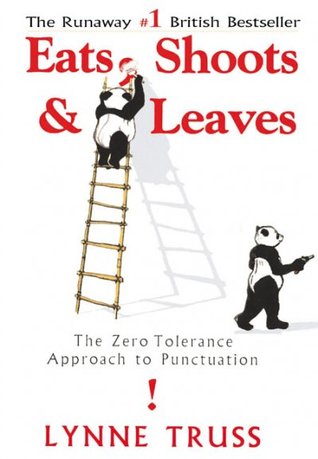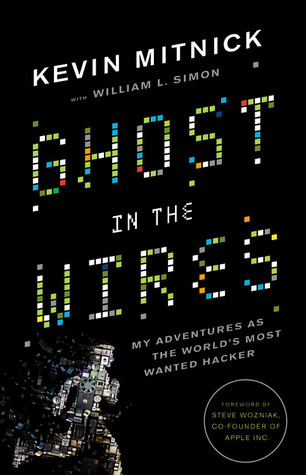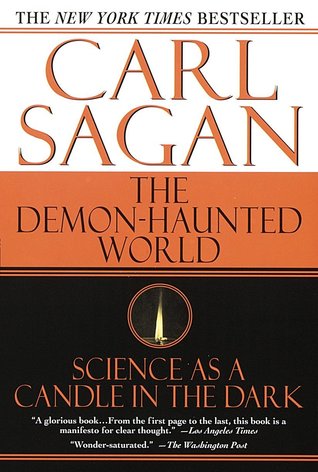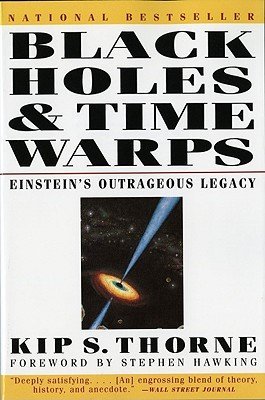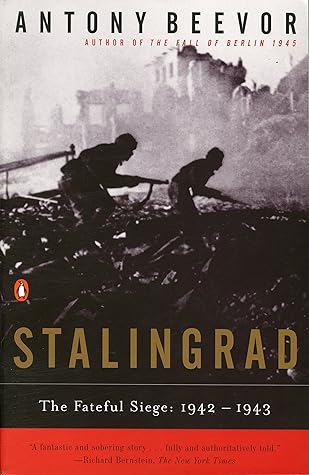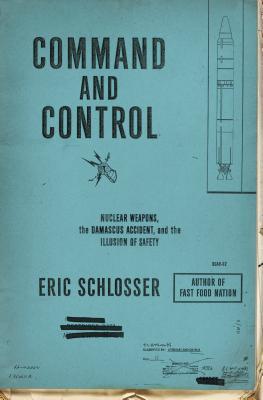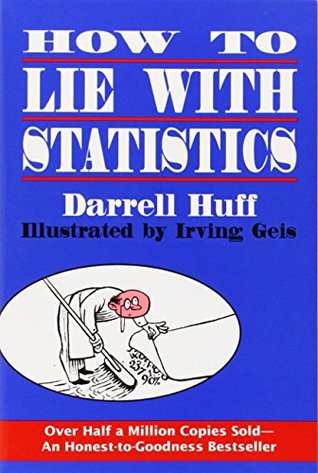Powered by a book like {foo}
Recommendations based on The Code Book: The Science of Secrecy from Ancient Egypt to Quantum Cryptographyby Simon Singh
* statistically, based on millions of data-points provided by fellow humans
Fermat's Enigma
by Simon Singh
Uncovering the centuries-old mathematical mystery of Pierre de Fermat's Last Theorem.
xn + yn = zn, where n represents 3, 4, 5, ...no solution "I have discovered a truly marvelous demonstration of this proposition which this margin is too narrow to contain." With these words, the ... (Goodreads)
Longitude: The True Story of a Lone Genius Who Solved the Greatest Scientific Problem of His Time
by Dava Sobel
Story of a man's determination to solve the complex problem of determining longitude at sea.
Anyone alive in the eighteenth century would have known that "the longitude problem" was the thorniest scientific dilemma of the day—and had been for centuries. Lacking the ability to measure their ... (Goodreads)
Big Bang: The Origin of the Universe
by Simon Singh
A comprehensive exploration of the Big Bang Theory, from its earliest beginnings to its implications today.
A half century ago, a shocking Washington Post headline claimed that the world began in five cataclysmic minutes rather than having existed for all time; a skeptical scientist dubbed the maverick ... (Goodreads)
The Selfish Gene
by Richard Dawkins
A study of evolutionary biology, exploring how genes act and how they impact behavior.
Inheriting the mantle of revolutionary biologist from Darwin, Watson, and Crick, Richard Dawkins forced an enormous change in the way we see ourselves and the world with the publication of The ... (Goodreads)
Guns, Germs, and Steel: The Fates of Human Societies
by Jared Diamond
Tracing the origins of human civilizations through the lens of geography, technology, and biology.
"Diamond has written a book of remarkable scope ... one of the most important and readable works on the human past published in recent years." Winner of the Pulitzer Prize and a national bestseller: ... (Goodreads)
A Brief History of Time
by Stephen Hawking
Exploring the depths of time and space and the emergence of the universe.
In the ten years since its publication in 1988, Stephen Hawking's classic work has become a landmark volume in scientific writing, with more than nine million copies in forty languages sold ... (Goodreads)
Fooled by Randomness: The Hidden Role of Chance in Life and in the Markets
by Nassim Nicholas Taleb
A critical examination of the impact of randomness/chance in life and financial markets.
Fooled by Randomness, is a standalone book in Nassim Nicholas Taleb’s landmark Incerto series, an investigation of opacity, luck, uncertainty, probability, human error, risk, and decision-making in a ... (Goodreads)
The Elegant Universe: Superstrings, Hidden Dimensions, and the Quest for the Ultimate Theory
by Brian Greene
Exploring the hidden realms of physics, in pursuit of a unified theory of nature.
Brian Greene, one of the world's leading string theorists, peels away the layers of mystery surrounding string theory to reveal a universe that consists of eleven dimensions, where the fabric of ... (Goodreads)
Bad Science
by Ben Goldacre
A critical look at the misuse of scientific fact and the implications of bad science.
Full of spleen, this is a hilarious, invigorating and informative journey through the world of Bad Science . When Dr Ben Goldacre saw someone on daytime TV dipping her feet in an 'Aqua Detox' ... (Goodreads)
The C Programming Language
by Brian W. Kernighan
Classic guide to the C programming language, covering syntax, data types, control flow, and more. A must-read for any aspiring programmer.
This book is meant to help the reader learn how to program in C. It is the definitive reference guide, now in a second edition. Although the first edition was written in 1978, it continues to be a ... (Goodreads)
A Short History of Nearly Everything
by Bill Bryson
A captivating overview of the natural sciences, spanning the history of the universe.
In Bryson's biggest book, he confronts his greatest challenge: to understand—and, if possible, answer—the oldest, biggest questions we have posed about the universe and ourselves. Taking as territory ... (Goodreads)
Into Thin Air: A Personal Account of the Mount Everest Disaster
by Jon Krakauer
A gripping narrative of the 1996 expedition on Mount Everest that resulted in tragedy.
When Jon Krakauer reached the summit of Mt. Everest in the early afternoon of May 10, 1996, he hadn't slept in fifty-seven hours and was reeling from the brain-altering effects of oxygen depletion. ... (Goodreads)
Gödel, Escher, Bach: An Eternal Golden Braid
by Douglas R. Hofstadter
A complex exploration of logic, mathematics and art, exploring their relationships and interconnections.
Douglas Hofstadter's book is concerned directly with the nature of “maps” or links between formal systems. However, according to Hofstadter, the formal system that underlies all mental activity ... (Goodreads)
The Emperor of All Maladies: A Biography of Cancer
by Siddhartha Mukherjee
A comprehensive account of the history and science of cancer, from its origins to modern treatments.
An alternative cover edition for this ISBN can be found, here, and, here,. The Emperor of All Maladies is a magnificent, profoundly humane “biography” of cancer - from its first documented ... (Goodreads)
The Black Swan: The Impact of the Highly Improbable
by Nassim Nicholas Taleb
A study of the role of randomness in life, and how it can lead to unexpected events.
A black swan is a highly improbable event with three principal characteristics: It is unpredictable; it carries a massive impact; and, after the fact, we concoct an explanation that makes it appear ... (Goodreads)
The God Delusion
by Richard Dawkins
Scientific exploration of the evidence for and against religious belief.
A preeminent scientist - and the world's most prominent atheist - asserts the irrationality of belief in God, and the grievous harm religion has inflicted on society, from the Crusades to 9/11. With ... (Goodreads)
Zero to One: Notes on Startups, or How to Build the Future
by Peter Thiel
A guide to launching a startup, exploring the power of entrepreneurship.
If you want to build a better future, you must believe in secrets. The great secret of our time is that there are still uncharted frontiers to explore and new inventions to create. In Zero to One, ... (Goodreads)
Cosmos
by Carl Sagan
Voyage through the vastness of space, unlocking the mysteries of the universe.
Cosmos has 13 heavily illustrated chapters, corresponding to the 13 episodes of the Cosmos television series. In the book, Sagan explores 15 billion years of cosmic evolution and the development of ... (Goodreads)
The Man Who Mistook His Wife for a Hat and Other Clinical Tales
by Oliver Sacks
A collection of case studies, illustrating extraordinary neurological phenomena.
If a man has lost a leg or an eye, he knows he has lost a leg or an eye; but if he has lost a self—himself—he cannot know it, because he is no longer there to know it. Dr. Oliver Sacks recounts the ... (Goodreads)
Chaos: Making a New Science
by James Gleick
Investigation of complex systems and the impact of chaos on scientific understanding.
A work of popular science in the tradition of Stephen Hawking and Carl Sagan, this 20th-anniversary edition of James Gleick’s groundbreaking bestseller Chaos introduces a whole new readership to ... (Goodreads)
Factfulness: Ten Reasons We're Wrong About the World – and Why Things Are Better Than You Think
by Hans Rosling
A data-driven book that challenges common misconceptions about the world and presents a more accurate, optimistic view of global progress.
Factfulness:, The stress-reducing habit of only carrying opinions for which you have strong supporting facts. When asked simple questions about global trends— what percentage of the world’s ... (Goodreads)
The Origin of Species
by Charles Darwin
Comprehensive scientific exploration of the evolution of species and the natural world.
Darwin's theory of natural selection issued a profound challenge to orthodox thought and belief: no being or species has been specifically created; all are locked into a pitiless struggle for ... (Goodreads)
Genius: The Life and Science of Richard Feynman
by James Gleick
A biography of physicist Richard Feynman, exploring his life and scientific contributions to quantum mechanics and the Manhattan Project.
An illuminating portrayal of Richard Feynman—a giant of twentieth century physics—from his childhood tinkering with radios, to his vital work on the Manhattan Project and beyond Raised in ... (Goodreads)
Eats, Shoots & Leaves: The Zero Tolerance Approach to Punctuation
by Lynne Truss
A humorous look at the importance of punctuation and its effect on language.
In Eats, Shoots & Leaves , former editor Lynne Truss, gravely concerned about our current grammatical state, boldly defends proper punctuation. She proclaims, in her delightfully urbane, witty, and ... (Goodreads)
Ghost in the Wires: My Adventures as the World's Most Wanted Hacker
by Kevin D. Mitnick
True story of an infamous hacker's journey of escape and evasion, eventually leading to his arrest and imprisonment.
If they were a hall of fame or shame for computer hackers, a Kevin Mitnick plaque would be mounted the near the entrance. While other nerds were fumbling with password possibilities, this adept ... (Goodreads)
The Demon-Haunted World: Science as a Candle in the Dark
by Carl Sagan
A critical look at superstition and pseudoscience, advocating for the power of science and reason.
How can we make intelligent decisions about our increasingly technology-driven lives if we don’t understand the difference between the myths of pseudoscience and the testable hypotheses of science? ... (Goodreads)
Black Holes & Time Warps: Einstein's Outrageous Legacy
by Kip S. Thorne
Exploring the strange and powerful effects of gravity and time, as predicted by Einstein's theories.
Ever since Albert Einstein's general theory of relativity burst upon the world in 1915 some of the most brilliant minds of our century have sought to decipher the mysteries bequeathed by that theory, ... (Goodreads)
Stalingrad: The Fateful Siege, 1942–1943
by Antony Beevor
The epic story of the Battle of Stalingrad and its devastating impact on WWII.
The Battle of Stalingrad was not only the psychological turning point of World War II: it also changed the face of modern warfare. From Antony Beevor, the internationally bestselling author of, ... (Barnes & Noble)
Command and Control: Nuclear Weapons, the Damascus Accident, and the Illusion of Safety
by Eric Schlosser
An exploration of nuclear weapon safety and the risk of catastrophic accidents.
A myth-shattering exposé of America’s nuclear weapons Famed investigative journalist Eric Schlosser digs deep to uncover secrets about the management of America’s nuclear arsenal. A groundbreaking ... (Goodreads)
How to Lie with Statistics
by Darrell Huff
A humorous guide to mastering the art of manipulating data to support any argument.
Darrell Huff runs the gamut of every popularly used type of statistic, probes such things as the sample study, the tabulation method, the interview technique, or the way the results are derived from ... (Goodreads)
